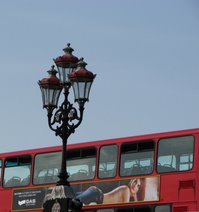Last weekend when I was in staying in Hong Kong, I decided to visit nearby Macao. This involved one hour spent in a "fast ferry" that would not be for everyone after a large breakfast.
Nonetheless I made it to Macao, stomach intact, for a day's sightseeing.
I had no real expectations of Macao except that it was a former Portuguese colony and is now home to many casinos. So I supposed a vaguely Portuguese version of Las Vegas ? In many ways that is about right, not forgetting that it is also Chinese controlled.
I found it more Chinese than international Hong Kong. A few elderly Portuguese men could be seen walking to the shops. Occassional wealthy looking young Portuguese zipped past in Mercedes but it was 99 % Chinese.
The casinos old and new were largely ugly and dominating from the outside. Vast new casinos were in the process of being built. This seemed more overtly industrial gambling than Las Vegas. There was little attempt at making the casinos pretty. This was large scale gambling for the serious gambler. I imagine that in time Macao will take more care in its development and future casinos will be less intimidating.
In contrast, the old heart of Macao was a delight. Narrow streets filled with local shoppers and occasional tourists, criss-crossed. Numerous Catholic Churches and a seminary were also to be seen.
I headed for the ruins of Sao Paulo church (photographed in an earlier post) to see if there was any good reason why this was the most photographed sight in Macao holiday literature.
I came to the conclusion that the impressive facade and the open space around it made it one of the few impressive and old sights that was easy to photograph in Macao.
I noticed a small table near to the church and walked over. On the table was a collection of literature, mainly in Chinese, on the alleged abuses of the Chinese Communist Party. An old woman gave me an English language newspaper. She didn't seem to speak any English but gestured as if to say "take it and read". A handful of other locals of various ages spoke to the small group that came up to the stall.
I wondered off into a nearby park and read the paper which made gruesome reading about the millions killed in the Cultural Revolution to the forced organ donations in modern China.
I then became aware of police in the area. They did not appear all at once in a big group but in twos and threes appearing on corners and around the Sao Paulo site.
Then a Chinese man in plain clothes (light suit and black polo neck) stepped out of a minivan with a walkie-talkie. Next I was aware of a young woman wearing an earpiece standing quite close to me in the park. I realised the traffic had stopped on the nearby roads and I saw a police motorcycle blocking the end of a road.
I did not know what all this meant but there was an eerie feeling and people seemed to be leaving the area voluntarily. The woman with the earpiece fiddled with a bulge under her coat. Was she going to pull out a gun, I wondered ?
I gave up my attempt at postcard writing and walked back to the Sao Paulo site to see if I could see the stall. My way was blocked by a uniformed policeman who said "Not allowed here now".
I glanced over to where the stall had been. Nothing was there now. I will never know if they were simply moved on or if they were "taken away" for questioning or worse.
However it is clear that under the surface there is much discontent in places such as Macao and probably China itself. As China becomes more visited and visible the attempts to stifle dissent are becoming more subtle. Potential witnesses are "excluded", roads shut until undesirables have been moved on. This is dictatorship in the age of global media. However the effort to deal with a small stall on a Saturday morning in Macao demonstrates that the Chinese government remains deadly serious about preventing rebellion.
I can only admire the bravery of a small group who came out to distribute literature on a Saturday morning. In the scramble for the Chinese market place, the vast repression in recent Chinese history seems to be forgotten. However until China acknowledges its past, surely its future is ultimately built on sand ?













